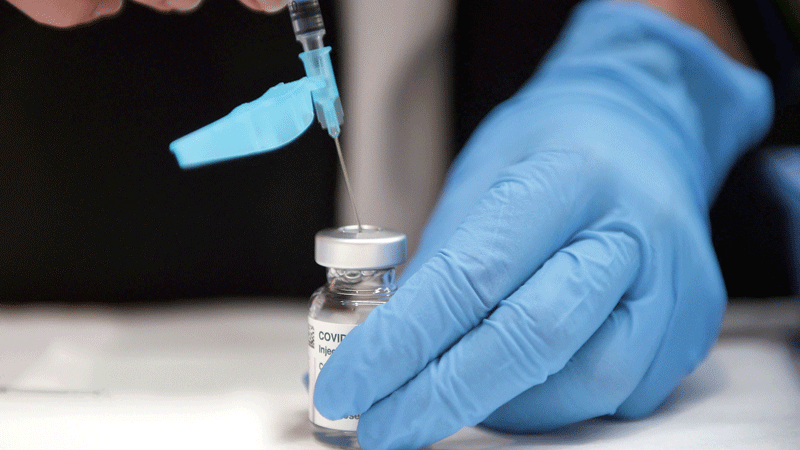

With the roll-out of vaccines gathering steam, there is a glimmer of hope in the Eastern Mediterranean Region.
According to the World Health Organization (WHO), 46 to 56 million doses of Oxford/AstraZeneca vaccines are expected to be available during the first half of 2021 in 20 countries in the Eastern Mediterranean Region — Afghanistan, Bahrain, Djibouti, Egypt, Iran, Iraq, Jordan, Lebanon, Oman, Libya, Morocco, Palestine, Pakistan, Qatar, Sudan, Saudi Arabia, Somalia, Syria, Tunisia and Yemen.
“As the first vaccines are rolled out by WHO and partners, we are working hard to make sure that the most vulnerable people in our region are vaccinated first, with the rest of the population planned for vaccination rounds later this year. This is welcome news for us, and for thousands of people who are at most risk of infection. As vaccines start rolling out, opportunities to flatten the curve of the pandemic across the region are more likely to happen,” said Dr Ahmed al Mandheri, WHO Regional Director for the Eastern Mediterranean.
In parallel, many countries in the region have also taken steps to protect their populations by approving several Covid-19 vaccines for emergency use through their national regulatory authorities.
Vaccination campaigns have been ongoing in nine countries of the region since the beginning of the year, targeting high-risk groups, including health workers, people over the age of 60, and people with underlying health conditions.
So far, over 2.9 million doses of various vaccines have been administrated in the United Arab Emirates, Bahrain, Saudi Arabia, Oman, Kuwait, Jordan, Egypt, Qatar, and recently in Morocco.
WHO’s Regional Office for the Eastern Mediterranean tracks vaccine use, regulations and other developments in countries of the region and provides technical support as needed.
However, vaccinations only work when they are effectively combined with public health strategies. These strategies include isolation and quarantine, tracking and tracing, as well as effective communication.
“While vaccines offer a flicker of hope, we are also faced with a reality today that we cannot ignore — many countries are continuing to see an increasing number of cases and deaths; new variants of Covid-19 are being reported in several countries around the world, and people who are not adhering to prevention measures are still being infected and infecting those around them,” he said.
While 2020 was a unique and challenging year, it has provided a glimmer of hope as vaccines for Covid-19 are rolled out.
Dr Ahmed bin Mohammed al Saeedi, the Minister of Health, has clarified that the Sultanate is expected to receive 200,000 doses of Johnson & Johnson Covid-19 vaccines by the end of June or early July.
The minister said that is likely to receive thousands of doses of the Oxford-AstraZeneca vaccine.
Through the 190-strong international Gavi vaccine alliance of WHO, more than 240,000 doses of different vaccines are scheduled to arrive in the Sultanate from mid-March to the beginning of May.
Vinod Nair
@vinot_nair
Oman Observer is now on the WhatsApp channel. Click here



